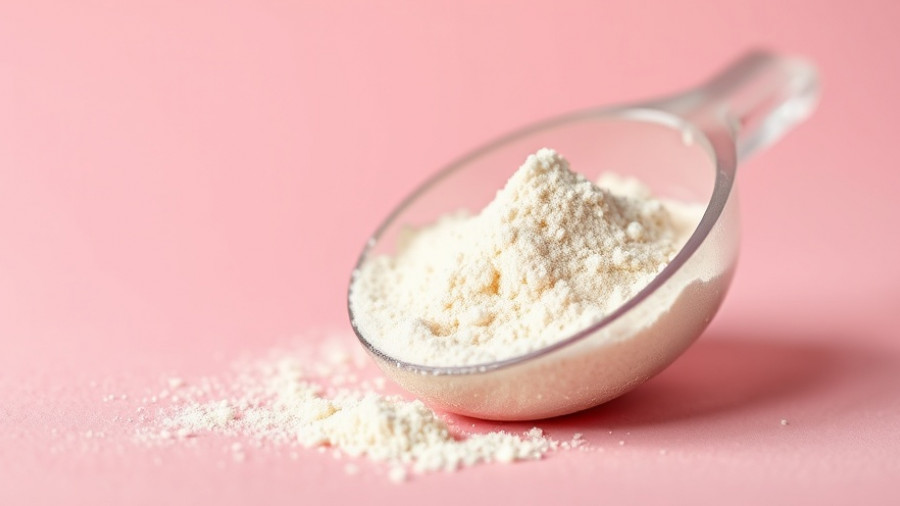
Navigating the Protein Powder Minefield: Lead Contamination Risks
In a shocking revelation by Consumer Reports, recent tests have revealed that many protein powders and shakes, once hailed as health boosters, contain dangerously high levels of lead. This report highlights that more than two-thirds of the tested products exceeded the safe consumption limit, raising significant concerns about the health implications for regular users.
Understanding Lead Exposure in Daily Diets
Lead is a toxic heavy metal found throughout the environment, yet its presence in our food and especially in dietary supplements is alarming. Many consumers may not realize that lead can accumulate in the body over time, posing serious health risks such as kidney damage, high blood pressure, and even reproductive issues. For frequent protein powder users, the implications can be severe, especially if they consume these products daily.
Why Are Protein Powders So Popular?
Since the early 2000s, high-protein diets have surged in popularity, turning what was once a niche bodybuilding supplement into a household staple. This rise in consumption has been driven by the perception that more protein contributes to better health, a notion fueled by influencers and emerging studies. However, many dietary experts argue that the average American, without restrictive diets, typically gets enough protein through whole foods, questioning the necessity of protein supplements at all.
High Leads in Vegan vs. Dairy Protein Powders
Interestingly, the Consumer Reports investigation found plant-based protein powders to contain lead levels that were, on average, nine times higher than their dairy-based counterparts. Specifically, products like Naked Nutrition’s Vegan Mass Gainer and Huel’s Black Edition posed substantial risks, with single servings containing more lead than recommended for the entire day. This spike in lead levels likely stems from the plant sources and the manufacturing processes which have proven difficult to regulate effectively.
Regulatory Gaps and Consumer Safety
One of the more troubling aspects of this issue is the lack of stringent regulatory measures governing dietary supplements. The Food and Drug Administration (FDA) does not set federal limits on heavy metal content in protein products, leaving safety largely dependent on manufacturers' claims. Consumer Reports has pressed the need for clearer regulations to establish safety limits, given that many consumers naively trust that supplements are safe without considering the risk of heavy metals.
What Should Consumers Do?
If you currently use protein powders, it is wise to reassess your choices and consider the following recommendations:
- Limit your intake of protein powders, especially those with plant-based sources, to reduce your lead exposure.
- Choose dairy-based powders when possible, as they tend to have lower heavy metal content.
- Research brands thoroughly and look for products that publish their testing results for heavy metals.
- Prioritize whole food protein sources over supplements—foods like beans, lean meats, dairy, and tofu can meet protein needs without added contaminants.
As we navigate an increasingly complex food landscape, being informed about what we consume is more crucial than ever. Awareness regarding potential heavy metal exposure from seemingly healthy supplements should guide our dietary choices.
For those concerned about protein intake, consulting a healthcare professional is recommended to determine actual needs. Remember, you can likely meet your protein requirements through a balanced diet rich in whole foods, minimizing reliance on potentially hazardous supplements.
 Add Row
Add Row  Add
Add 




Write A Comment